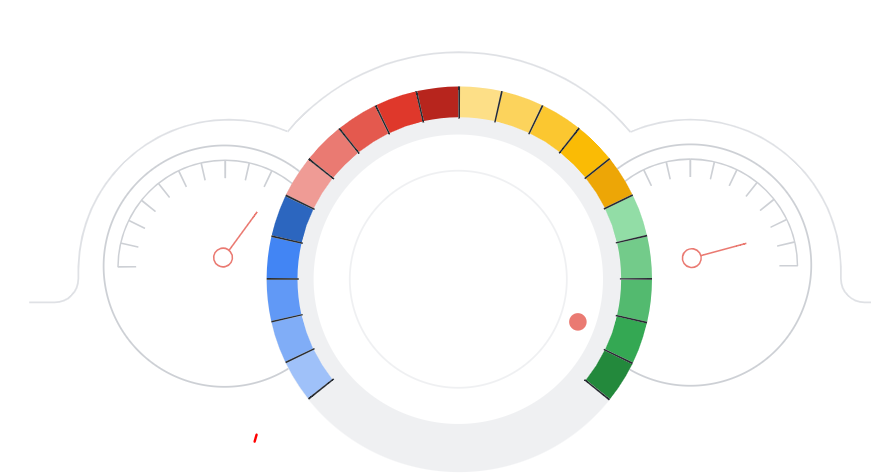Are you curious about how your website or online content is performing on Google? Do you want to know if your target keywords are reaching the top of the search engine results page?
Understanding keyword ranking in Google is crucial for optimizing your online presence and driving organic traffic to your website.
Throughout the blog, we will provide valuable insights into the tools and techniques to check keyword ranking in Google and a step-by-step guide to effectively monitor your rankings.
By keeping a close eye on your keyword ranking, you can assess your SEO efforts, identify areas for improvement, and stay ahead of your competition.
Short Summary
-
Understanding keyword ranking is crucial for effective SEO strategies.
-
Monitoring keyword rankings helps assess SEO performance and make data-driven optimizations.
-
Popular tools like Google Search Console, SEMrush, and Moz can be used for checking keyword rankings.
-
Analyzing keyword ranking data helps identify trends and make informed decisions.
-
Interpreting the results allows for adjustments and improvements in SEO strategies.
What is Keyword Ranking?

Keyword ranking refers to the position at which a specific keyword or phrase appears in the search engine results page (SERP) when users perform relevant searches.
It is a crucial metric for evaluating the visibility and success of your website or content in search engine optimization (SEO). A higher keyword ranking indicates that your website is more likely to be seen by users, resulting in increased organic traffic.
Search engines, like Google, employ complex algorithms to determine keyword rankings. These algorithms consider various factors to deliver the most relevant and valuable results to users.
While the exact algorithms are closely guarded secrets, search engines generally prioritize factors such as keyword relevance, content quality, backlinks, user experience, and website authority.
Factors influencing keyword ranking
-
On-page optimization: This includes factors like keyword usage in title tags, meta descriptions, headings, and content, as well as the overall quality and relevance of the content.
-
Off-page optimization: Backlinks from reputable and authoritative websites play a significant role in keyword ranking.
-
User experience: Search engines assess factors like website speed, mobile-friendliness, and ease of navigation, as they contribute to a positive user experience.
-
Content relevance: Search engines prioritize websites with high-quality and relevant content that matches users’ search intent.
-
Social signals: Engagement on social media platforms, such as shares, likes, and comments, can indirectly influence keyword ranking.
Tools and Techniques for Checking Keyword Ranking

There are several popular keyword ranking tools available that can provide valuable insights into your website’s keyword performance.
Let’s explore some of the most popular tools.
-
Google Search Console: Google Search Console is a free tool provided by Google that offers a range of features to monitor and analyze your website’s performance in search results. To use it for Google keyword ranking analysis:
-
Set up your website in Google Search Console and verify ownership.
-
Access the “Performance” section, where you can view the keywords that drive traffic to your site and their respective rankings.
-
Analyze the data, including impressions, clicks, average position, and click-through rate (CTR), to gain insights into your keyword rankings. You can filter the data by date, country, and more.
-
-
SEMrush: SEMrush is a comprehensive SEO suite that offers extensive keyword tracking capabilities. It provides accurate and up-to-date data on keyword rankings and offers various features for competitive analysis and keyword research. With SEMrush, you can:
-
Track keyword rankings for your website and monitor changes over time.
-
Discover new keyword opportunities and identify keyword gaps.
-
Analyze competitor Google rankings and compare your performance against industry benchmarks.
-
Access historical ranking data and generate reports for in-depth analysis.
-
-
Ahrefs: Ahrefs is renowned for its powerful backlink analysis capabilities but also offers a robust keyword rank checker tool. With Ahrefs, you can:
-
Track keyword rankings and monitor their fluctuations.
-
Analyze keyword difficulty and identify opportunities for ranking improvement.
-
Explore organic search traffic potential and estimate search volumes.
-
Conduct competitor analysis and gain insights into their top-performing keywords.
-
-
Moz: Moz offers a suite of SEO tools, including keyword tracking capabilities. With Moz, you can:
-
Track keyword rankings and monitor changes over time.
-
Access features like keyword difficulty analysis and search volume data.
-
Analyze competitor rankings and compare performance.
-
-
SERPWatcher: SERPWatcher is a user-friendly google keyword position checker
-
that focuses specifically on tracking keyword rankings. Its features include:
-
Tracking keyword positions in Google and other search engines.
-
Monitoring keyword movements and changes in rankings.
-
Generating customizable reports for keyword ranking analysis.
-
-
Rank Tracker: Rank Tracker is a versatile tool that offers keyword tracking across multiple search engines and countries. It provides features such as:
-
Tracking keyword rankings and monitoring fluctuations.
-
Conducting in-depth keyword research and analysis.
-
Generating comprehensive reports with visualizations.
-
Manual methods for checking keyword ranking
While automated tools provide efficient and comprehensive keyword ranking data, you can also perform manual checks to get a quick snapshot of your rankings. Here’s how:
-
Perform a search on Google:
-
Open an incognito or private browsing window to ensure personalized search results are not displayed.
-
Enter your target keyword in the search bar and analyze the SERP to find where your website appears.
-
Take note of the position and any relevant competitors appearing above or below your website.
-
-
Use browser extensions:
-
Several browser extensions, such as MozBar or SEOquake, can display keyword rankings directly in the search results.
-
Install a relevant browser extension and perform a search to see the ranking positions.
-
Manual methods can provide a basic understanding of your keyword rankings, but they may be time-consuming and lack the comprehensive data offered by dedicated tools.
Step-by-Step Guide to Checking Keyword Ranking
Tracking your keyword rankings is an essential aspect of search engine optimization. It helps you understand how your website is performing in search engine results and allows you to make data-driven adjustments to improve your rankings.
Here’s a step-by-step guide to checking keyword ranking.
Defining your target keywords
-
Begin by identifying the keywords that are relevant to your website or content. Consider the terms your target audience is likely to search for.
-
Conduct keyword research using tools like Google Keyword Planner, SEMrush, or Ahrefs to explore keyword ideas, search volumes, and competition levels.
-
Narrow down your list to a set of primary and secondary keywords that align with your content and SEO goals.
Selecting the appropriate tools for tracking
-
Evaluate different keyword ranking tools based on factors like accuracy, features, ease of use, and budget.
-
Consider tools like Google Search Console (free), SEMrush, Ahrefs, Moz, or other third-party tools based on your specific requirements.
-
Choose a tool that provides comprehensive keyword tracking capabilities and aligns with your desired level of analysis and reporting.
Setting up and configuring the tools
-
Sign up for the selected tool and set up your account.
-
Add your website or specific webpages to the tool for tracking.
-
Configure the settings to specify the keywords you want to monitor and any additional parameters like location or language preferences.
-
Connect your website to the tool using the recommended method, such as adding tracking code or integrating with your content management system (CMS).
Analyzing keyword ranking data
-
Once your tracking tool is set up, allow some time for it to collect data and gather keyword ranking information.
-
Access the tool’s dashboard or reporting section to view your keyword rankings.
-
Explore the data, which typically includes the keyword, current ranking position, search volume, and other relevant metrics.
-
Analyze trends, changes, and fluctuations in your rankings over time to identify patterns and potential areas for improvement.
Interpreting the results and making adjustments
-
Compare your keyword rankings to your initial goals and expectations.
-
Identify keywords that are performing well and driving significant organic traffic to your website.
-
Take note of keywords that are not ranking as expected or have lower visibility.
-
Use the insights gained from the analysis to make informed adjustments to your SEO strategy:
-
Optimize content and on-page elements for underperforming keywords.
-
Improve website authority and acquire relevant backlinks to boost rankings.
-
Consider refining your keyword targeting or expanding your keyword list based on the data.
-
Monitor competitor rankings and adapt your strategy accordingly.
-
Regularly track and analyze your keyword ranking data to measure the effectiveness of your adjustments.
-
By following this step-by-step guide, you can effectively track and monitor your keyword rankings, gain insights into your SEO performance, and make data-driven adjustments to improve your search engine visibility.
Best Practices for Keyword Ranking Optimization

Achieving and maintaining high keyword rankings requires a strategic approach. Here are some best practices to optimize your keyword rankings:
Conducting keyword research
-
Identify relevant keywords that align with your target audience’s search intent.
-
Use keyword research tools to discover high-volume, low-competition keywords.
-
Consider long-tail keywords to capture more specific search queries.
-
Analyze keyword trends and search volumes to prioritize your targeting efforts.
Optimizing on-page elements for better ranking
-
Include target keywords in the title tag, meta description, headings, and URL.
-
Optimize the content by incorporating keywords naturally, without keyword stuffing.
-
Ensure the content is well-structured, easy to read, and provides value to users.
-
Optimize images with descriptive alt tags and filenames.
Building high-quality backlinks
-
Focus on acquiring backlinks from authoritative and relevant websites.
-
Create valuable and shareable content to attract natural backlinks.
-
Participate in industry-related forums, guest blogging, or influencer collaborations to earn backlinks.
-
Monitor and disavow any toxic or spammy backlinks that may harm your rankings.
Creating engaging and relevant content
-
Develop high-quality, informative, and engaging content that meets user needs.
-
Use keywords naturally within the content to optimize for both users and search engines.
-
Incorporate multimedia elements, such as images, videos, or infographics, to enhance user experience.
-
Regularly update and refresh your content to maintain its relevance and usefulness.
Monitoring and adapting to changes in ranking algorithms
-
Stay informed about updates to search engine algorithms, especially major ones like Google’s core updates.
-
Monitor your keyword rankings regularly to identify any significant changes or drops.
-
Stay updated on SEO industry trends and best practices to adapt your strategies accordingly.
-
Continuously analyze and optimize your website based on the latest SEO guidelines.
Advanced Strategies for Keyword Ranking Improvement
For those seeking further optimization, consider these advanced strategies to improve your keyword rankings:
Analyzing competitor keyword ranking
-
Identify competitors ranking well for your target keywords.
-
Analyze their content, on-page optimization, and backlink profiles to gain insights.
-
Identify areas where you can differentiate and surpass their strategies.
Implementing structured data and schema markup
-
Use structured data markup to provide search engines with additional information about your content.
-
Implement schema markup to enhance the visibility and appearance of your website in search results.
Optimizing for voice search and mobile devices
-
Optimize your content to answer voice search queries naturally.
-
Ensure your website is mobile-friendly and offers a seamless user experience across devices.
Utilizing local SEO tactics
-
Optimize your website and content for local keywords if you have a physical location or serve specific areas.
-
Claim and optimize your Google My Business profile to improve local search visibility.
Exploring paid advertising options
-
Consider running paid search advertising campaigns, such as Google Ads, to enhance your visibility for target keywords.
-
Utilize strategies like pay-per-click (PPC) advertising and remarketing to attract targeted traffic to your website.
Conclusion
In the ever-evolving world of SEO, monitoring keyword rankings is crucial for your website’s success. By keeping a close eye on how your keywords perform in search engine results, you gain valuable insights that can guide your SEO strategy and drive organic traffic to your site.
So, don’t wait any longer – start monitoring your keyword rankings today! Embrace the power of data-driven decision-making, optimize your on-page elements, build high-quality backlinks, create engaging content, and adapt to changes in ranking algorithms.
SEO and keyword tracking are not just trends, but essential practices for long-term online visibility and business growth. Stay ahead of the competition, climb the search engine rankings, and reap the rewards of a well-optimized website. Remember, every click and every conversion starts with a keyword.
Looking To Supercharge Your SEO Efforts And Achieve Higher Keyword Rankings? Look No Further!
Take your website to new heights with Hook Agency, your trusted SEO partner. Our team of experts is ready to optimize your website, conduct in-depth keyword research, build authoritative backlinks, and provide ongoing monitoring and analysis.
Don’t miss out on the opportunity to dominate the search results and drive targeted traffic to your site. Contact Hook Agency today to get instant quote and let’s embark on an SEO journey together!
Frequently Asked Questions
What is keyword ranking in SEO?
Keyword ranking refers to the position at which a website or webpage appears in search engine results for a specific keyword or search query. It is a crucial metric in SEO as higher rankings typically lead to increased visibility, organic traffic, and potential conversions.
Why is monitoring keyword ranking important?
Monitoring keyword rankings allows you to assess the effectiveness of your SEO efforts and make data-driven optimizations. By tracking your keyword rankings, you can identify opportunities for improvement, analyze competitor performance, and adjust your SEO strategies accordingly to increase your visibility and organic traffic.
How can I check my keyword rankings?
There are several tools available to check keyword rankings. Google Search Console provides basic ranking data for your website, while third-party tools like SEMrush, Ahrefs, and Moz offer more advanced features for in-depth keyword tracking and analysis. Additionally, manual methods such as performing a search on Google or using browser extensions can give you a quick snapshot of your rankings.
How often should I check my keyword rankings?
The frequency of checking keyword rankings depends on your specific goals and the competitiveness of your industry. Generally, it is recommended to check rankings on a regular basis, such as weekly or monthly, to monitor changes and track the progress of your SEO efforts. However, avoid obsessively checking rankings as they can fluctuate naturally due to various factors.
How long does it take to see improvements in keyword rankings?
The time it takes to see improvements in keyword rankings can vary depending on various factors, including the competitiveness of the keyword, the quality of your SEO efforts, and the overall authority of your website. Generally, it takes time and consistent optimization efforts to see significant changes in rankings. Patience, persistence, and ongoing monitoring and adjustment are key to achieving and maintaining higher keyword rankings.















